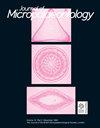用于微古生物学分析的改进湿分离器,以及使用分离器数据的不确定性评估
IF 1.8
3区 地球科学
Q1 PALEONTOLOGY
引用次数: 3
摘要
摘要有孔虫组合的分析通常是在干燥样品上进行的,这些样品很容易分裂。在某些情况下,湿采法被称为湿采法,因为它可以保存更多的有孔虫形态,并有助于活有孔虫的采挖。然而,湿法采摘所需的执行时间的增加可能会导致微生物学家不敢以常规方式使用它。在这里,我们提出了一种改进的、最有效的微生物古生物样本湿式分离器(包括3D打印文件),旨在减少采集时间,同时将地层损失降至最低。我们展示了小样本损失以及分割之间的统计一致性。我们表明,选择一个观测集所节省的时间总是大于统计确定性的相对增加。本文章由计算机程序翻译,如有差异,请以英文原文为准。
Improved wet splitter for micropalaeontological analysis, and assessment of uncertainty using data from splitters
Abstract. Analyses of foraminiferal assemblages have often been implemented on dry
samples, which are easy to split. In some cases, the wet-picking method is
preferred as it allows the preservation of more foraminiferal forms and
facilitates the picking of live foraminifera. However, the increased
execution time needed for wet picking may cause micropalaeontologists to
refrain from employing it in a routine way. Here we present an improved and
cost-effective wet splitter (including a 3-D printing file) for
micropalaeontological samples aimed to reduce picking time while keeping
information loss to a minimum. We demonstrate small sample losses as well as
statistical consistency across splits. We show that the time saved picking a
subset will always be larger than the relative increase in statistical
uncertainty.
求助全文
通过发布文献求助,成功后即可免费获取论文全文。
去求助
来源期刊

Journal of Micropalaeontology
生物-古生物学
CiteScore
4.30
自引率
5.00%
发文量
7
审稿时长
>12 weeks
期刊介绍:
The Journal of Micropalaeontology (JM) is an established international journal covering all aspects of microfossils and their application to both applied studies and basic research. In particular we welcome submissions relating to microfossils and their application to palaeoceanography, palaeoclimatology, palaeobiology, evolution, taxonomy, environmental change and molecular phylogeny.
 求助内容:
求助内容: 应助结果提醒方式:
应助结果提醒方式:


